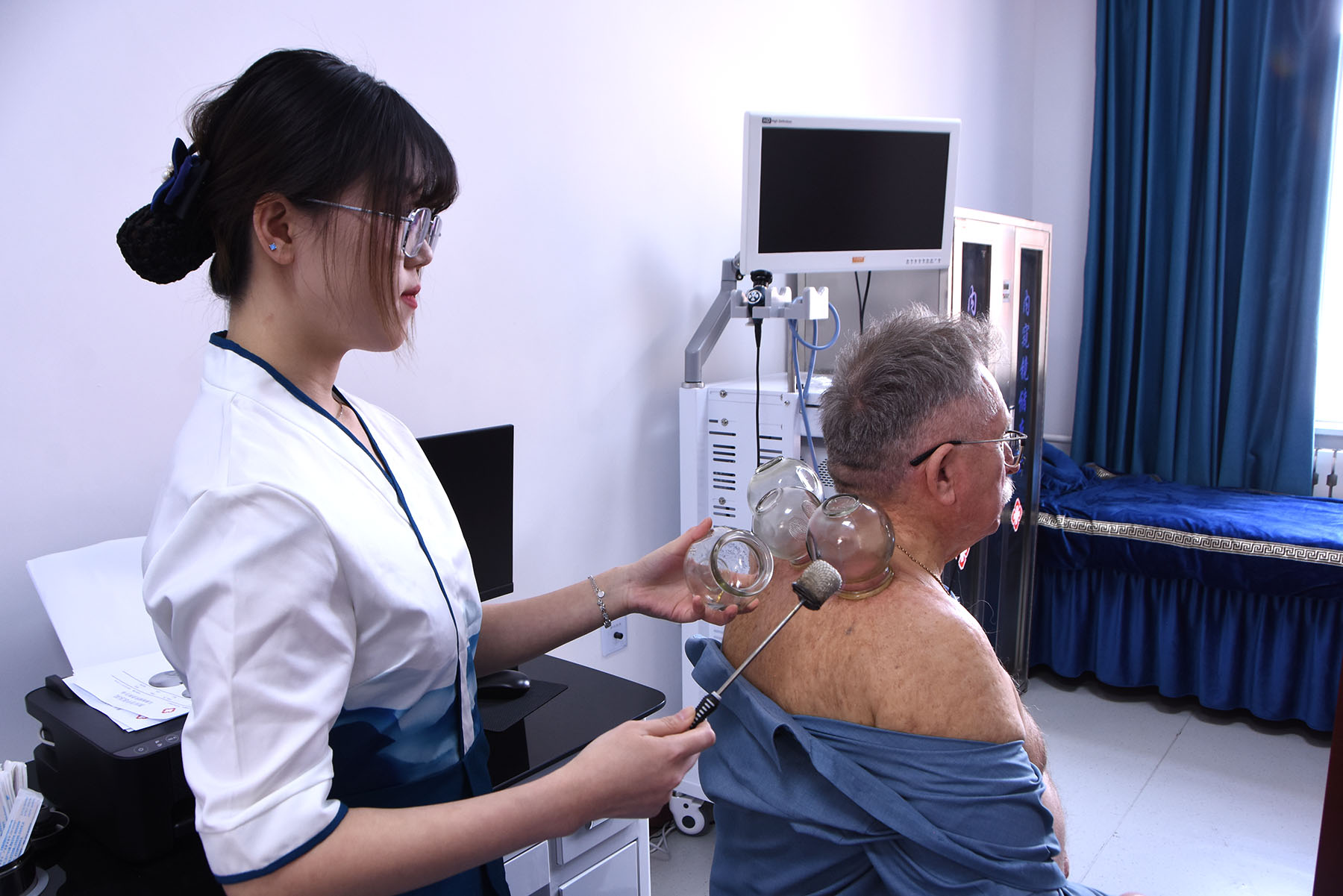
Traditional Chinese medicine is fueling a growing wave of inbound medical tourism in China's border regions, particularly in cities such as Heihe and Suifenhe in Heilongjiang province.
At the Traditional Chinese Medicine Hospital in Heihe, the scent of moxa wafts through the outpatient corridors. Consultation rooms feature traditional Chinese decor, with bilingual signage in Chinese and Russian.
Vladimir Andriushenko, a 56-year-old from Russia's Amur Oblast, found relief from chronic neck and shoulder pain after undergoing massage therapy at the hospital.
READ MORE: Global experts pledge medical innovation ties
"I have suffered from neck and shoulder pain for quite a long time," he said. "When I first experienced traditional Chinese massage, I felt its magical effect."
Andriushenko said he discovered TCM through books and online research and has developed a strong interest in it since his first treatment years ago.
"In many parts of Russia, where it's cold, people often suffer from bone and joint diseases," he said. "In Russia, rehabilitation mainly depends on medical equipment, but TCM therapies such as massage, acupuncture, cupping and herbal tea have become popular because they're gentle and effective."
During his two-day trip to Heihe in April, Andriushenko also bought acupuncture needles and herbal cough medicine.
"Most Russian patients prefer pulse diagnosis and herbal medicine," said Liu Xuesong, director of the hospital. "The revisit rate for conditions such as rheumatism and neck pain is quite high.
"As trust in TCM grows, many patients refer their relatives and friends," he said. "To better serve Russian patients, we established an international medical department last year, trained our staff in Russian and hired professional translators to ensure smooth communication."
In 2024, the hospital provided acupuncture, cupping and other TCM therapies to more than 600 Russian patients and prescribed over 300 herbal formulas.
The hospital has signed a cooperation agreement with a rehabilitation center in Yuzhno-Sakhalinsk, Russia, Liu said.
"We plan to send four medical staff members there to help set up a TCM experience hall and offer massage therapy," he said.
Beyond hospital visits, Heihe has also leveraged its natural volcanic magnetic field and cold mineral springs in the Wudalianchi scenic area to attract older Russian visitors.
Last year, the scenic area welcomed 210,000 health tourists, 40 percent of whom were from Russia.
"The cold mineral springs are effective for rheumatism and spinal diseases, which are common among the Russians who visit," said Yuan Xiaobo, head of the scenic area's culture and tourism bureau. "We offer seven- to 14-day health packages combining spring water therapy and TCM — a good fit for short-term medical tourists."
The scenic area has also attracted investment from major companies like Yiling Hospital Management Group to build high-end therapeutic hospitals, offering personalized care plans and international-standard equipment.
A similar trend is emerging in Suifenhe, another Heilongjiang city on the Russian border.
ALSO READ: Wellness tourism emerges as new holiday trend in China
At the People's Hospital of Suifenhe, signage in Chinese, Russian and English helps guide patients through the facility.
Last year, the hospital treated over 10,000 foreign patients. Since the start of this year, it has served more than 600, mostly from Russia's Far East, according to hospital officials.
"To better serve Russian patients, we've set up a dedicated reception room with traditional Chinese health exercises," said Liu Ximing, director of the national TCM service export base at the hospital. "We've also upgraded our salt therapy room to blend treatment with leisure."
The hospital has established a remote consultation center and an international emergency dispatch center, using an "internet plus medical" model to efficiently meet the healthcare needs of Russian patients.
Contact the writers at zhouhuiying@chinadaily.com.cn


